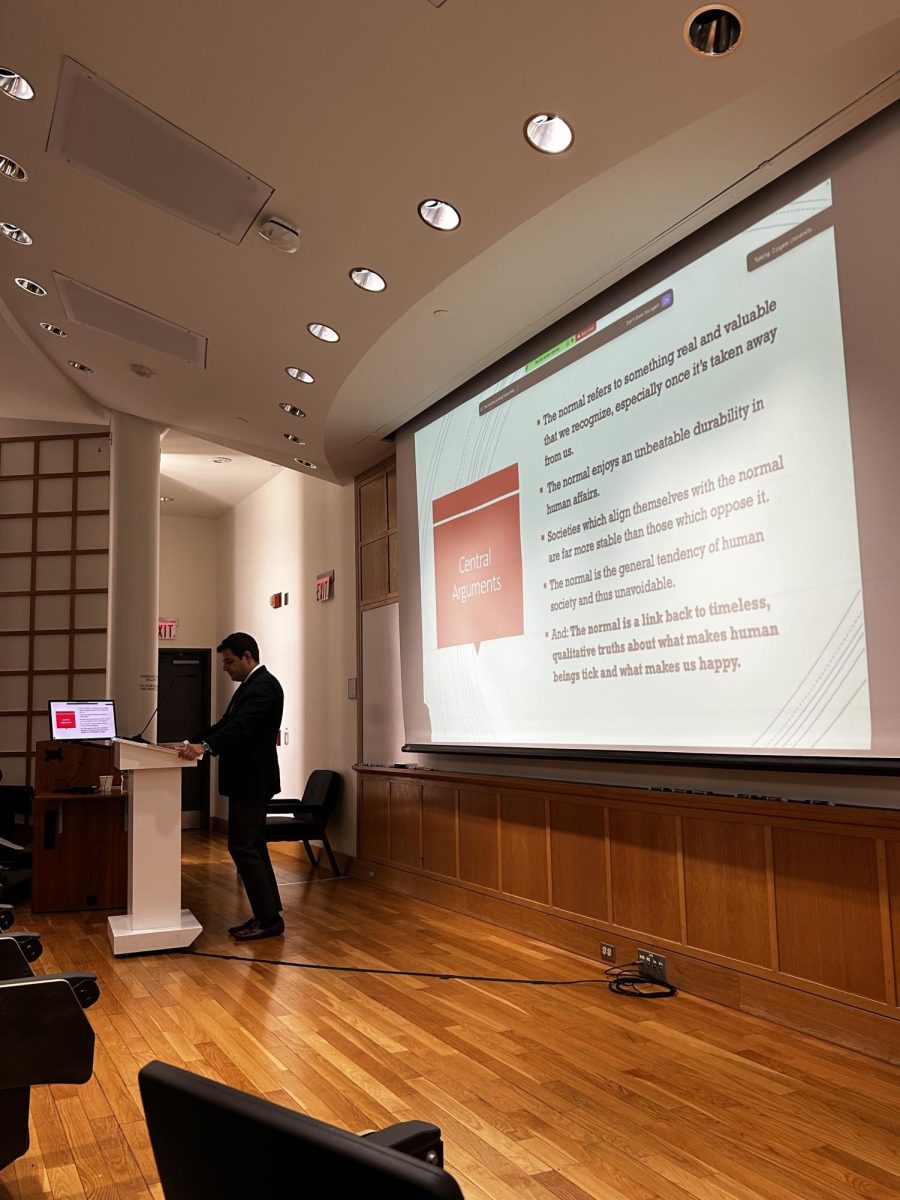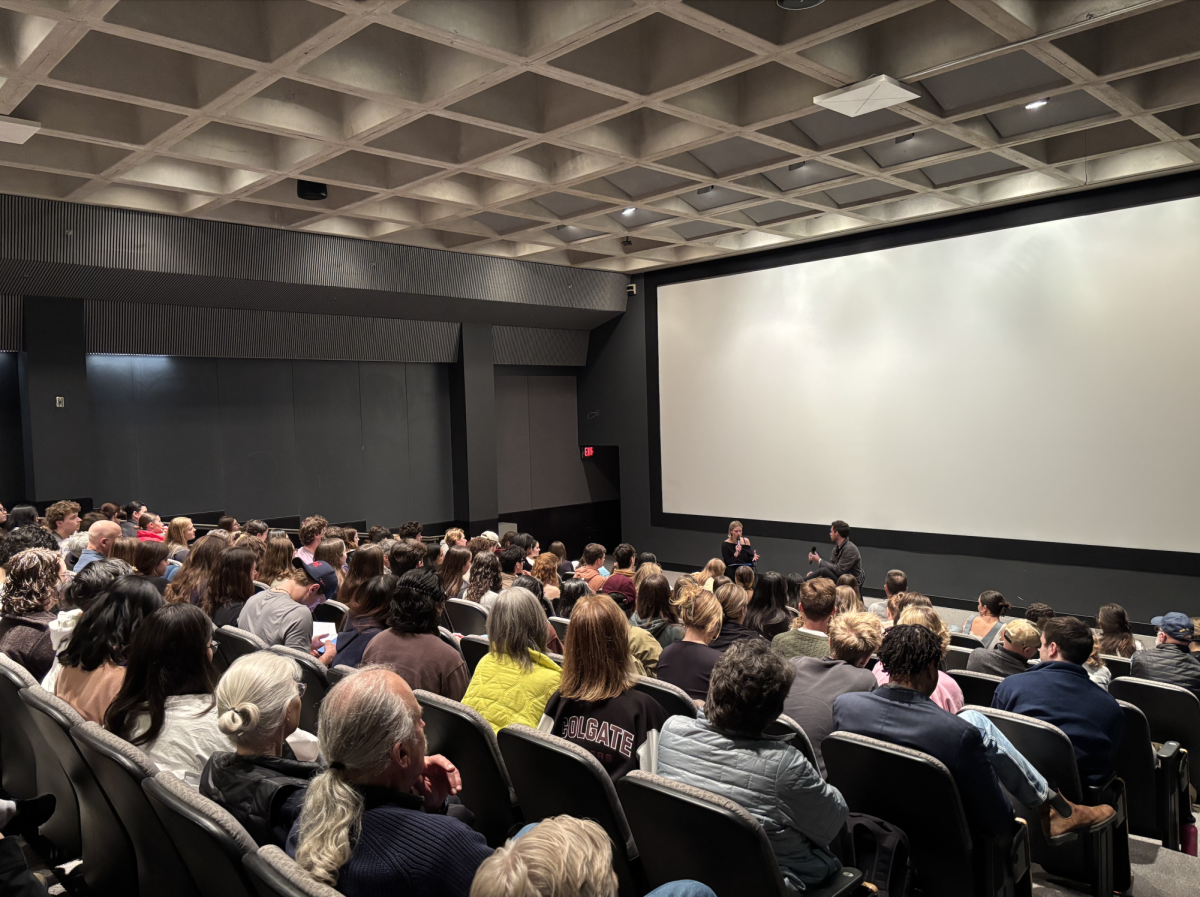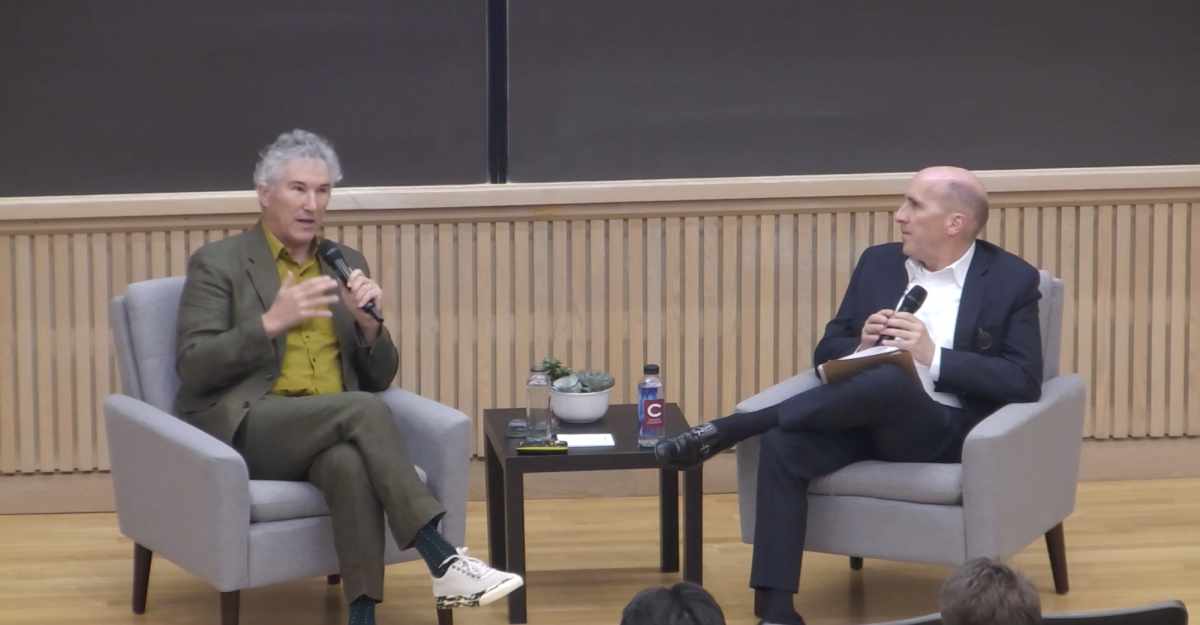Journalist and author Sohrab Ahmari visited Colgate University on April 3, sharing about his conversion to Catholicism and his thoughts on religious freedom ahead of his upcoming project: a book on the triumph of normality.
Previously, Ahmari worked as an editor and columnist for the Wall Street Journal opinion pages in New York and London, as well as the op-ed editor of the New York Post. In 2022, he co-founded Compact Magazine, an American online magazine. Ahmari also wrote “The Unbroken Thread: Discovering the Wisdom of Tradition in an Age of Chaos” and “Tyranny, Inc.: How Private Power Crushed American Liberty — and What To Do About It.” He is currently the U.S. editor of UnHerd, an online newspaper for political and social commentary.
Before Ahmari’s formal discussion on Thursday, April 3, hosted by the Center for Freedom and Western Civilization’s Forum on Philosophy and Religion and titled “The Rise and Fall of Anti-Normal Politics,” he spoke at the University’s Heretics Club. Heretics Club Co-Leader and Professor of Philosophy David Dudrick spoke highly of the event.
“I, myself, find [Ahmari’s] thought to be really engaging and remarkably Catholic in both respects,” Dudrick said. “It’s Catholic as it consistently sounds notes from church teachings — one that together may sound dissonant to some but which, I think, are music to the ears of those who have ears to hear. It’s also Catholic in the sense that it resonates with a population often thought to be underrepresented among academics.”
Ahmari previewed topics from his upcoming book, which will include a critical analysis of how the term “normal” has evolved throughout political history. Ahmari argued that what we deem “normal” links back to qualitative truths about what makes human nature and what makes us happy. According to him, the construct of “normal” allows us to answer our existential questions, engage in social conversations and structure our society.
He also addressed the societal confusion around what we think is normal and how constructs of normalcy inform our behaviors. Ahmari drew historical parallels to demonstrate how past thinkers have grappled with normalcy. Referencing François Joseph Victor Broussais, a French physician, he highlighted the link between the normal and abnormal in biology during the 19th century. He contrasted this with statistical models such as Adolphe Quetelet’s “Average Man,” which treats normalcy as quantifiable. Ahmari highlighted how the model lacks individual nuance.
Later, Ahmari presented a comparative analysis of the preeminent philosophical arguments about normalcy. He first cited Aristotelian ethics, which states that moral truths are as objective as natural facts and, therefore, humans seek to act towards a final cause. This camp argues that normality can guide our paths to action. He then introduced David Hume’s argument, which says that because humans do not have an objective understanding of the relationship between humanity and the world, they are ill-equipped to make fact-based assumptions of morality. These two different moral philosophies encouraged the audience to question the relationship between our individual morality and perspectives of normalcy.
Sophomore Valentina Mejia highlighted Ahmari’s historiographic analysis.
“The ways in which Ahmari compared conflicting ideologies underscored the difficulty in defining what is normal and why we all have different definitions,” Mejia said. “I particularly found his arguments about moral philosophy to be engaging.”
Sophomore Cece Purkiss was among the student attendees who found Ahmari’s analysis very insightful.
“I found the talk to be very thought-provoking,” Purkiss said. “Ahmari encouraged me to think about what I deem normal and how that influences the way I act.”
The Heretics Club’s final discussion of the semester, “Disagreeing Well Across Religious Difference,” is a conversation with Colgate Chaplains Rabbi Barry Baron and Imam Ahmet Celik and will take place on Thursday, April 24.











